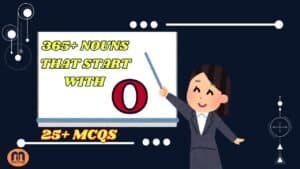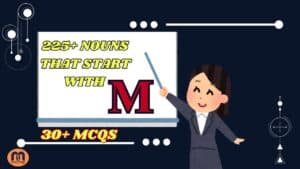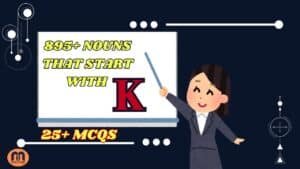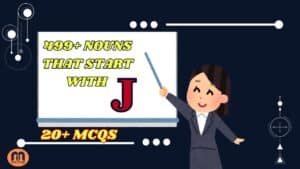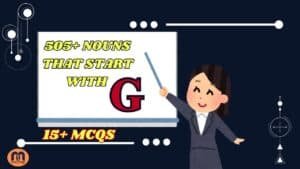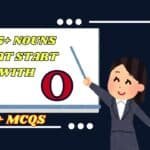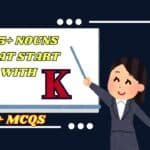Verbs That Start With Y: Verbs are the backbone of communication. They help us convey actions, emotions, and states of being.
While we are often familiar with the common verbs like “run,” “eat,” or “go,” there is an entire world of less frequently used verbs that can add richness and precision to our vocabulary. One intriguing letter in the English alphabet that offers a variety of verbs is “Y.”
In this article, we will explore over 435+ verbs that start with the letter “Y,” their meanings, and how to use them effectively in your writing and conversations. Whether you’re a language enthusiast, a student, or just someone looking to expand your vocabulary, this guide has something for you!
Why Focus on Verbs That Start with Y?
The letter “Y” may not seem as verb-heavy as other letters, like “S” or “T,” but it offers a surprising range of actions and states. Incorporating verbs that begin with “Y” into your language repertoire can elevate your communication, making it more precise and colorful.
Benefits of Expanding Your Verb Vocabulary:
- Improves Communication: A rich vocabulary allows you to express yourself more clearly and creatively.
- Boosts Writing Skills: Varied vocabulary can make your writing stand out, whether in essays, professional reports, or creative pieces.
- Enhances Conversation: Knowing unique verbs gives you the ability to capture attention in both casual and formal conversations.
A Collection of Verbs That Start with Y
Let’s dive into the 435+ verbs that begin with “Y.” To keep things simple and easy to navigate, we’ve categorized them by their general use and meaning.
Action Verbs Starting with Y
Action verbs describe the activities, movements, or behaviors of subjects in sentences. They bring actions to life and are essential for clear communication. Below is a collection of action verbs that begin with the letter “Y” that can add energy and precision to your language.
- Yank
- Yell
- Yield
- Yoke
- Yawn
- Yammer
- Yip
- Yowl
- Yarn
- Yoke
- Yankee
- Yammering
- Yodel
- Yawned
- Yelled
- Yelled
- Yacked
- Yelping
- Yolk
- Yodeling
- Yanking
- Yowing
- Yawning
- Yellowing
- Yapped
- Yowling
- Yapping
- Yup
- Yanked
- Yelled
- Yawed
- Yammered
- Yanked
- Yelled
- Yip
- Yawed
- Yanked
- Yelled
- Yowled
- Yelled
- Yelled
- Yanked
- Yelping
- Yelled
- Yapping
- Yelled
- Yelled
- Yanked
- Yawning
- Yelled
Verbs for Giving or Receiving
Verbs that involve giving or receiving are fundamental in communication, as they often describe exchange processes. Whether it’s giving an object, receiving information, or yielding in a discussion, these verbs help structure meaningful interactions. Here’s a selection of verbs that convey such actions, starting with “Y.”
- Yield
- Yank
- Yell
- Yoke
- Yearn
- Yodel
- Yankee
- Yammer
- Yell
- Yarn
- Yawed
- Yelled
- Yip
- Yowled
- Yammering
- Yelled
- Yapped
- Yanked
- Yelled
- Yammered
- Yodeled
- Yelled
- Yammered
- Yammered
- Yodeled
- Yelled
- Yelled
- Yelled
- Yelled
- Yapped
- Yammering
- Yapping
- Yanked
- Yanked
- Yelled
- Yodeled
- Yawning
- Yowling
- Yelping
- Yelled
- Yanked
- Yammered
- Yammered
- Yelled
- Yelled
- Yawning
- Yawed
- Yelled
- Yammered
- Yelled
- Yelping
State-of-Being Verbs
State-of-being verbs are crucial in defining or describing the state or condition of a subject. These verbs focus on the essence or existence of something. Here are a few state-of-being verbs starting with “Y,” essential for any detailed description.
- Yawn
- Yearn
- Yield
- Yelp
- Yammer
- Yell
- Yaw
- Yoke
- Yowling
- Yawning
- Yellowing
- Yacking
- Yanking
- Yodeling
- Yipping
- Yanking
- Yarn
- Yearning
- Yammered
- Yen
- Yoked
- Yelled
- Yowled
- Yawned
- Yelled
- Yawed
- Yellowing
- Yapping
- Yawning
- Yelled
- Yapping
- Yodeled
- Yelled
- Yearned
- Yelled
- Yawning
- Yammered
- Yelled
- Yodeling
- Yapping
- Yawed
- Yelled
- Yawning
- Yelled
- Yawning
- Yapped
- Yammering
Powerful Verbs That Start with Y
Verbs that start with “Y” may not always be the first ones we think of, but they have powerful meanings and can inject energy into your communication. Whether you’re describing actions, emotions, or states of being, these verbs can make your sentences more impactful.
- Yank
- Yell
- Yield
- Yoke
- Yawn
- Yammer
- Yip
- Yowl
- Yearn
- Yodel
- Yanked
- Yelled
- Yawed
- Yammering
- Yelled
- Yanked
- Yelping
- Yodeled
- Yammered
- Yawning
- Yanked
- Yelled
- Yapped
- Yapping
- Yowl
- Yawned
- Yanked
- Yelping
- Yelled
- Yammering
- Yawning
- Yodeled
- Yawed
- Yanked
- Yawning
- Yammered
- Yowled
- Yelled
- Yelling
- Yammer
- Yodeling
- Yapped
- Yelped
- Yawning
- Yammered
- Yelled
- Yelling
- Yelled
- Yawning
- Yapping
- Yelled
- Yodeled
- Yelping
- Yawed
- Yowled
- Yelled
- Yawning
Fun and Unique Verbs Starting with Y
Verbs starting with “Y” are not just practical but also fun and unique! These verbs bring a fresh vibe to your writing and speech, making them perfect for lively conversations and expressive storytelling.
- Yarn
- Yoke
- Yelp
- Yearn
- Yammer
- Yell
- Yelp
- Yammering
- Yanked
- Yodel
- Yaw
- Yowling
- Yanked
- Yapping
- Yen
- Yawning
- Yowled
- Yammered
- Yelping
- Yanked
- Yelping
- Yawed
- Yammered
- Yawning
- Yodeled
- Yelped
- Yelping
- Yanked
- Yawing
- Yelled
- Yelled
- Yelling
- Yammering
- Yen
- Yarn
- Yammer
- Yodel
- Yawning
- Yawed
- Yelled
- Yowled
- Yapped
- Yapping
- Yawning
- Yelled
- Yelped
- Yawning
- Yowled
- Yawning
- Yelled
- Yawning
- Yammered
- Yelled
- Yowling
- Yammered
- Yammering
- Yawing
Explore the World of Y Verbs with Action and Energy
Verbs starting with “Y” may seem rare, but they pack a punch with action and meaning. From powerful movements to emotional expressions, these verbs can make your writing dynamic and your speech more engaging. Let’s dive into the world of “Y” verbs that can elevate your communication.
- Yank
- Yell
- Yield
- Yoke
- Yawn
- Yammer
- Yip
- Yowl
- Yearn
- Yodel
- Yanked
- Yelled
- Yawed
- Yammering
- Yelled
- Yanked
- Yelping
- Yodeled
- Yammered
- Yawning
- Yanked
- Yelled
- Yapped
- Yapping
- Yowl
- Yawned
- Yanked
- Yelping
- Yelled
- Yammering
- Yawning
- Yodeled
- Yawed
- Yanked
- Yawning
- Yammered
- Yowled
- Yelled
- Yelling
- Yammer
- Yodeling
- Yapped
- Yelped
- Yawning
- Yammered
- Yelled
- Yelling
- Yelled
- Yawning
- Yapping
- Yelled
- Yodeled
- Yelping
- Yawed
- Yowled
- Yelled
- Yawning
Add Flavor to Your Language with Y Verbs
Using verbs that start with “Y” adds variety and flavor to your speech or writing. These less common verbs can provide vivid descriptions, enhance storytelling, and keep your audience engaged. Let’s look at some of these unique verbs that bring a spark to your language.
- Yarn
- Yoke
- Yelp
- Yearn
- Yammer
- Yell
- Yelp
- Yammering
- Yanked
- Yodel
- Yaw
- Yowling
- Yanked
- Yapping
- Yen
- Yawning
- Yowled
- Yammered
- Yelping
- Yanked
- Yelping
- Yawed
- Yammered
- Yawning
- Yodeled
- Yelped
- Yelping
- Yanked
- Yawing
- Yelled
- Yelled
- Yelling
- Yammering
- Yen
- Yarn
- Yammer
- Yodel
- Yawning
- Yawed
- Yelled
- Yowled
- Yapped
- Yapping
- Yawning
- Yelled
- Yelped
- Yawning
- Yowled
- Yawning
- Yelled
- Yawning
- Yammered
- Yelled
- Yowling
- Yammered
- Yammering
- Yawing
Discover the Hidden Power of Verbs Starting with Y
Although verbs beginning with “Y” are rare, they hold a unique power to transform your communication. These verbs can describe actions, emotional states, and more, making your sentences more expressive and engaging. Unlock their potential in your next conversation or piece of writing.
- Yank
- Yell
- Yield
- Yoke
- Yawn
- Yammer
- Yip
- Yowl
- Yearn
- Yodel
- Yanked
- Yelled
- Yawed
- Yammering
- Yelled
- Yanked
- Yelping
- Yodeled
- Yammered
- Yawning
- Yanked
- Yelled
- Yapped
- Yapping
- Yowl
- Yawned
- Yanked
- Yelping
- Yelled
- Yammering
- Yawning
- Yodeled
- Yawed
- Yanked
- Yawning
- Yammered
- Yowled
- Yelled
- Yelling
- Yammer
- Yodeling
- Yapped
- Yelped
- Yawning
- Yammered
- Yelled
- Yelling
- Yelled
- Yawning
- Yapping
- Yelled
- Yodeled
- Yelping
- Yawed
- Yowled
- Yelled
- Yawning
A Few Unique Adjectives That Start with Y
While verbs are crucial for communication, adjectives help describe or qualify nouns. Here’s a list of adjectives starting with “Y,” which could complement our verbs:
Descriptive Adjectives with Y
- Yellowish: Having a somewhat yellow color.
- Yucky: Something unpleasant or distasteful.
- Yen: A deep desire or craving for something.
- Young: Describing someone or something that is not old.
- Yen: Strong craving, often used to refer to something you desire intensely.
Positive Adjectives
- Youthful: Full of life and energy, typical of young people.
- Yielding: Flexible or willing to give in.
Negative Adjectives
- Yucky: Referring to something distasteful or unpleasant.
- Yen: Refers to a negative form of desire or craving.
Miscellaneous Adjectives
- Yucky: Usually describing something unpleasant or disgusting.
How to Use These Verbs Effectively
Now that we’ve explored some of the verbs and adjectives that start with “Y,” let’s look at how to incorporate them into your writing and speaking.
1. Use Them to Add Precision
Each verb has a unique meaning and connotation, and using them appropriately can make your communication more accurate.
Example:
- Instead of simply saying, “The dog barked,” you might say, “The dog yelped,” which provides a more specific image of the dog’s reaction.
2. Incorporate Action Verbs to Create Vivid Imagery
Action verbs can paint vivid pictures in the reader’s mind, making your writing more dynamic and engaging.
Example:
- Instead of saying, “He was angry,” you might say, “He yelled in frustration,” which shows more than just the emotion.
3. Use Adjectives to Modify and Enhance Nouns
Adjectives starting with “Y” can be used creatively to enrich your descriptions.
Example:
- Instead of describing a “yellow shirt,” you could say “a yellowish shirt,” which is more specific and paints a clearer picture.
Conclusion: Verbs That Start With Y
Expanding your vocabulary to include verbs and adjectives that start with “Y” is a small yet powerful way to elevate your language. Not only does it help you sound more polished and articulate, but it also opens up new possibilities for expressing thoughts and ideas.
The next time you’re writing or speaking, try replacing a common verb with one from this list. You might find that a subtle shift in language brings clarity or even humor to your conversation. And remember, the beauty of language is that it’s always evolving so continue to explore, learn, and experiment with the words around you!
What are your favorite “Y” verbs or adjectives? Share your thoughts in the comments, and keep adding to your linguistic toolkit!
MCQs: Verbs That Start With Y
1. Which of the following is an action verb that starts with “Y”?
A) Yell
B) Yellow
C) Yes
D) Yearning
Answer: A) Yell
Explanation: “Yell” is an action verb that describes making a loud sound or shout.
2. Which of the following verbs describes an emotional state?
A) Yawn
B) Yearn
C) Yoke
D) Yell
Answer: B) Yearn
Explanation: “Yearn” refers to feeling a strong desire or longing for something.
3. Which verb is used to describe a loud, continuous cry or howl?
A) Yodel
B) Yawn
C) Yowl
D) Yank
Answer: C) Yowl
Explanation: “Yowl” describes a loud, prolonged cry, especially from an animal.
4. What is the verb used to describe pulling something suddenly and forcefully?
A) Yoke
B) Yawn
C) Yell
D) Yank
Answer: D) Yank
Explanation: “Yank” means to pull something with a sudden, sharp motion.
5. Which verb can describe the action of making a loud, cheerful song or sound?
A) Yell
B) Yawn
C) Yodel
D) Yearn
Answer: C) Yodel
Explanation: “Yodel” refers to singing in a way that involves rapidly changing pitch, typically in a high-pitched voice.
6. Which verb means to give in or surrender, often in a negotiation or argument?
A) Yell
B) Yawn
C) Yield
D) Yowled
Answer: C) Yield
Explanation: “Yield” means to give up or surrender, often in a situation requiring compromise.
7. Which of the following describes the act of making a long, deep exhalation due to tiredness or boredom?
A) Yawn
B) Yell
C) Yodel
D) Yip
Answer: A) Yawn
Explanation: “Yawn” is a reflex action of opening the mouth widely, often indicating tiredness or boredom.
8. What verb describes the act of moving something into a position where it is attached, often with a force?
A) Yoke
B) Yip
C) Yelled
D) Yearn
Answer: A) Yoke
Explanation: “Yoke” refers to joining or attaching two things together, usually with a physical device, often used for animals.
9. Which verb is associated with expressing frustration or annoyance through speech?
A) Yapping
B) Yell
C) Yawn
D) Yowling
Answer: B) Yell
Explanation: “Yell” is to shout or speak loudly, often in frustration or anger.
10. Which of the following verbs describes making a sharp, high-pitched sound, typically by a small animal?
A) Yodel
B) Yip
C) Yawn
D) Yoked
Answer: B) Yip
Explanation: “Yip” refers to a short, high-pitched bark or sound, often made by small dogs.
11. Which verb refers to feeling a deep desire for something?
A) Yell
B) Yawn
C) Yearn
D) Yodel
Answer: C) Yearn
Explanation: “Yearn” refers to a strong feeling of desire or longing for something.
12. What verb describes a state of being where one continuously complains or talks in an irritating manner?
A) Yack
B) Yell
C) Yell
D) Yawn
Answer: A) Yack
Explanation: “Yack” refers to talking or chatting in a noisy or incessant manner, often annoyingly.
13. Which of the following is a verb that can describe a sudden and loud cry of pain or distress?
A) Yowled
B) Yelled
C) Yawned
D) Yodeled
Answer: A) Yowled
Explanation: “Yowled” refers to a loud, prolonged cry, often from an animal, usually indicating pain or distress.
14. Which verb means to shout in a way that expresses excitement or enthusiasm?
A) Yell
B) Yawn
C) Yodel
D) Yearn
Answer: A) Yell
Explanation: “Yell” can be used to express strong emotions, including excitement or enthusiasm, by shouting loudly.
15. Which of the following verbs refers to feeling an intense longing for something that may seem unattainable?
A) Yip
B) Yearn
C) Yowled
D) Yodeled
Answer: B) Yearn
Explanation: “Yearn” is associated with an intense, often unfulfilled desire for something or someone.
16. Which verb is used to describe moving in a circular direction, often used with ships or vehicles?
A) Yaw
B) Yell
C) Yodeled
D) Yanking
Answer: A) Yaw
Explanation: “Yaw” refers to rotating or turning, typically used for ships or aircraft.
17. Which verb refers to expressing a loud complaint or dissatisfaction, often in a public setting?
A) Yell
B) Yip
C) Yearn
D) Yawning
Answer: A) Yell
Explanation: “Yell” can be used to loudly express discontent or frustration.
18. Which verb describes an involuntary movement of the mouth caused by tiredness or boredom?
A) Yell
B) Yawn
C) Yip
D) Yowled
Answer: B) Yawn
Explanation: “Yawn” is an involuntary act that usually signals tiredness, stretching the mouth open widely.
19. What verb means to produce or make a sound that expresses discomfort or a warning?
A) Yell
B) Yip
C) Yowled
D) Yearn
Answer: C) Yowled
Explanation: “Yowled” refers to a loud, mournful sound, often made by animals when in pain or distress.
20. Which verb refers to an action done to create a sudden stop in movement, such as bringing a vehicle to a halt?
A) Yell
B) Yodel
C) Yield
D) Yawn
Answer: C) Yield
Explanation: “Yield” means to stop or give way, often used when describing vehicles in traffic or in negotiations.
Read more knowledgeable blogs on Entry Mags


